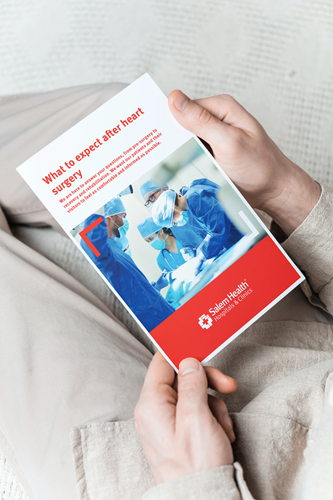Salem Health cardiac surgery
Restoring heart valves, arteries and peace of mind
The experts at Salem Health have extensive experience in cardiac surgery to treat complex cardiovascular conditions. Our innovative teams are committed to providing the best outcomes possible. We have a comprehensive surgical program, offering both traditional heart surgery and minimally invasive procedures to accommodate patients throughout the mid-Willamette Valley.
We perform the following types of cardiac surgery at Salem Hospital:
- Open heart surgery
- Bypass surgery for coronary artery disease
- Aortic aneurysms repairs
- Mitral valve repair or replacements
- Aortic valve repair or replace
- Tricuspid valve repair
- Injury repairs

Salem Hospital is the right choice for your cardiac surgery
Lowest readmission rate in Oregon
At Salem Hospital, our cardiac surgeons, physicians, nurses and specialists do everything in their power to keep cardiac surgery patients from being readmitted. This dedication to high-quality outcomes has earned us the lowest readmission rate in
the state.
Fewer days spent in the hospital
Our proven procedures ensure cardiac surgery patients have a shorter stay in the hospital — the shortest of any hospital in Oregon. A shorter stay means patients can get back to their lives quicker, reduce the risk of hospital-acquired
infections and potentially reduce their costs.
A wealth of cardiac surgery experience
Salem Health's cardiac surgeons are some of the most experienced in Oregon. While there is always a risk with cardiac surgery, our surgeons have the knowledge and expertise to quickly deal with any unexpected situations that may arise during surgery.
Common conditions we treat
- Aortic disease
- Arrhythmias
- Cardiomyopathy
- Congenital heart disease
- Coronary artery disease
- Heart failure
- Heart valve disease
- Transplantation
Common treatments we provide
- Aortic valve replacement or repair
- Atrial fibrillation surgery
- Catheter based surgery
- Coronary artery bypass surgery
- Heart repair
- Mitral valve repair
- Ventricular assist device implantation
